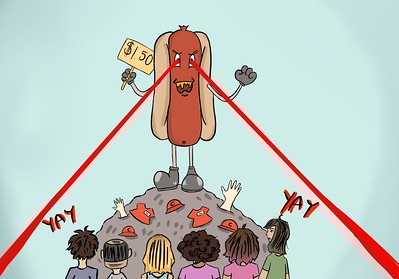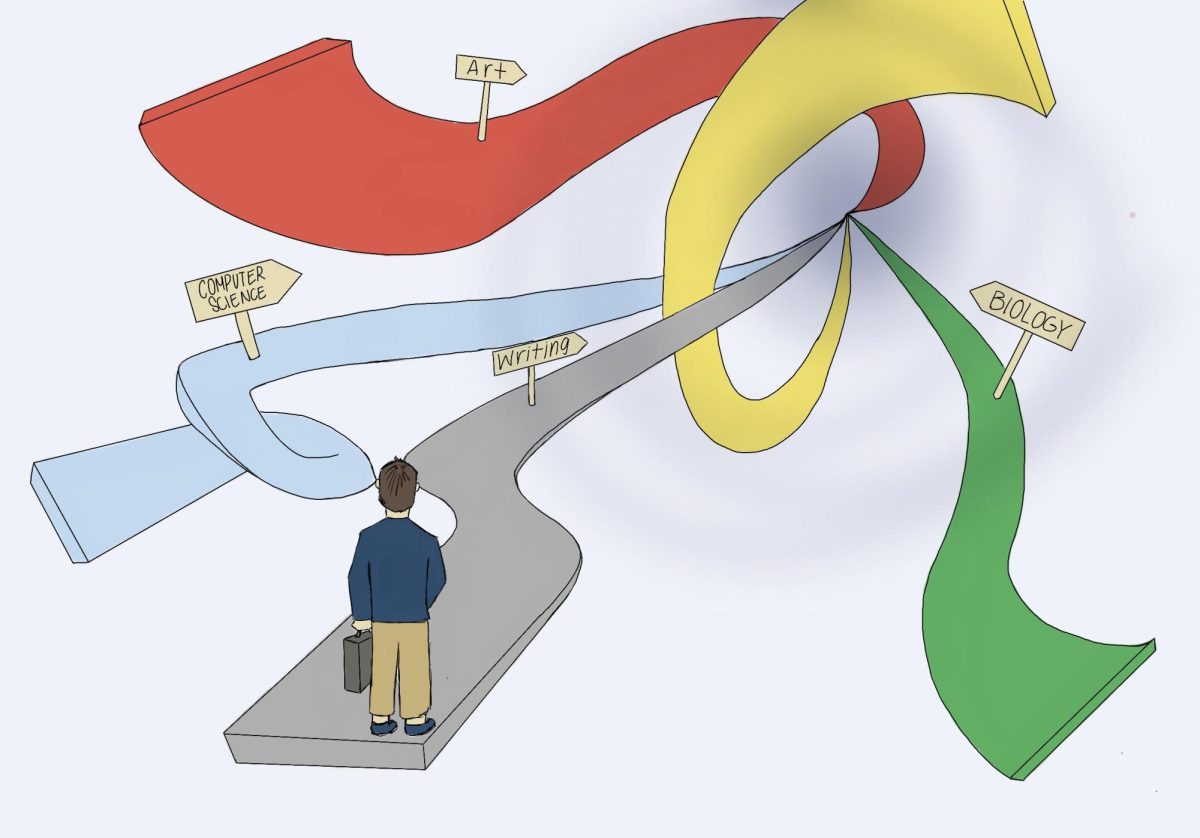
We all know deep down that corporations are just downright evil. I think it’s a bit hard to look at a corporation like Nestle, which is responsible for a minimum of 10.9 million infant deaths, and still believe, “Ah yes, jolly good chaps those lot are, they surely have my best interests in mind as a consumer.”
But it’s easy for us to look at the literal worst of the worst and sway ourselves into a false sense of security in which we believe that we can successfully categorize the “good” from the “bad.” We as consumers look at corporations like Amazon versus Trader Joe’s with a difference of night and day. Amazon we perceive as a net negative when it comes to any morale aspect. Amazon is largely known to abuse its workers, to have horrible conditions within factories and to view them as little more than simply labor to use and throw away. Amazon knows most people don’t really have a choice, as they control so much of the market. Meaning that Amazon doesn’t need to care, because why do it if it means giving up on exploiting labor?
When in comparison, Trader Joe’s puts on a nice exterior. They hire local artists to make each store unique. They stock products that are healthy while still cheap compared to similar quality options. However, when you break it down to brass tacks, they are fundamentally the same. They both threaten workers with worse wages and working conditions or harass workers based on nothing more than, in both eyes, the gaw to wear a union pin or want better working conditions. The only difference is that Trader Joe’s cleans the blade before stabbing you in the back. And that’s the problem: corporations know how we view them, so they work ahead of it.
It doesn’t matter how sure of ourselves we think we are to tell the “good” guys from the “bad” guys when they can just dress up as the good guys. Corporations know that as long as they act like they care, even if it’s just for their consumers and not employees, they will have a horde of fans willing to defend anything they do. It shouldn’t be surprising that Trader Joe’s has been owned by Aldi Nord, one of the largest grocery chains by sales, since 1979. They cosplay as being small and unwilling to do harm in the name of profit. Corporations like Trader Joe’s use their perception by their customers to their advantage. It’s one thing to have a good public opinion about yourself while also doing a ton of shady activities, like union busting, on the side. It’s another thing to be able to hide behind your public perception to absolve you of any wrongdoing you do commit.
The worst part is that Trader Joe’s is not the only one doing it. While I’ll admit they are the flashiest at it, there are plenty more stores and corporations that attempt to do the same thing. But the one that threatens to give Trader Joe’s a run for its money is none other than our dear beloved, home to the $1.50 hotdog and food court pizza, Costco. While Trader Joe’s is a whole lot more blatant with the whole union-busting and abusing workers thing, a part of Costco’s whole shtick is being pro-worker. So how do they act pro-worker without actually being pro-worker? A lot of it has to do with how Costco is responding to recent unionizations across the country under the Teamsters. Costco, while being a corporation that sticks by its “for the workers” narrative, has been less than receptive to any actual meaningful negotiation attempts, throwing out softballs like minimal wage increases in the vein of attempting to avoid worker strikes. The core of the issue revolved around their “needs of the business” method of denying workers, used to avoid giving actual reasons for why someone can’t get time off. And rather than fix that, they would prefer to ignore it and fix other things instead, in order to hold onto their pro-worker brand image while still getting what they want.
Costco, at the end of the day, would rather poke and prod, trying to convince workers that they can solve the issue without the need for unions. Running the same played out narrative that they are disappointed in themselves, that they will investigate it internally, taking the high road. While also refusing to sit down with union negotiators for basic welfare measures that employees used to receive and now don’t. And that’s the thing, Costco is nowhere near as bad as Amazon, but they are heading down the same road. Customers have pampered it so much for its nice deals and cheap food, that they have given Costco the allowance to think they can start to turn into Amazon. That’s why it’s dangerous to hold any business, especially corporations, as a monolith, because they’re like vampires. As soon as you give them the space to bite your neck and drain you and their workers of your worth, they’re taking it.
There is a reason why corporations want to be considered people. Aside from all the legal loopholes they get away with because of it, it’s to seem personable. Fast food places definitely have the knack for it, and no one pretends to be a person on Twitter better than Wendy’s. “She” acts snarky, making humorous remarks, making fun of dumb or relatable things because she’s one of us, right? Some unpaid intern who got access to the company account because they don’t care. It’s meant to create a brand image, when you think of Wendy’s, you think of her roasting McDonald’s or saying she wants to send Katy Perry back to space. It is nice cushioning for a company to have if they do something shady, the blame doesn’t get put onto Wendy, the poor intern forced to be their social media manager, and totally not a big advertising firm they hired to look good. Wendy is meant to act as the everyday person, tired from life, overworked and underpaid, manufactured to be relatable so that we are a little more inclined to throw cash their way. The idea of the unpaid social media manager intern has grown as a trend too. You see it all over TikTok. Dozens of blue checkmarks sprouting out from the woodworks in the comments of popular videos, saying things that fit their brand-associated personality. Brand accounts in general have grown astronomically, pretty much every corporation has thrown in their hat. And there is no real way to further ignore the large green owl in the room anymore, Duolingo. The most popular, and most successful case study for online marketing. Duolingo was the first one to truly profit off of it. So what’s the problem? While their mascot, Duo, is often said to be the evil one, doing a number of heinous things if you ruin your streak, this time it’s actually just the corporation being the evil one. Duolingo’s CEO Luis von Ahn announced the company’s goal of going “AI first” on April 28, replacing all and every single contract worker with AI, the same people who were responsible for Duolingo’s successful advertising campaign in the first place. Duolingo is just one of many corporations going down the AI-tainted path, and at this rate, not the last. Duolingo is also another example of how it doesn’t matter how relatable a brand makes itself seem on social media, because at the end of the day, they all care about the same thing: extracting as much profit out of you as possible.
So If you are still struggling to find a reason to care about any of this, whether it’s brand accounts trying to market to you, or corporations advertising their supposed “pro-worker attitude,” this is why. Every time we give in and say Costco is the only good company out there while throwing any actual criticism of them away, or go onto TikTok and interact with NutterButter making another cryptic and psychedelic video, we allow them to win a bit. To make it seem like it’s OK to throw away people and workers for a little extra profit because of their indispensable brand image. At the end of the day, no matter how much any company wants it to seem like they aren’t out here only for profit, or acts like they care about you, we need to realize, it’s a bull-faced lie. Online extreme marketing or grocery stores acting nice is just another attempt to make us forget that.







